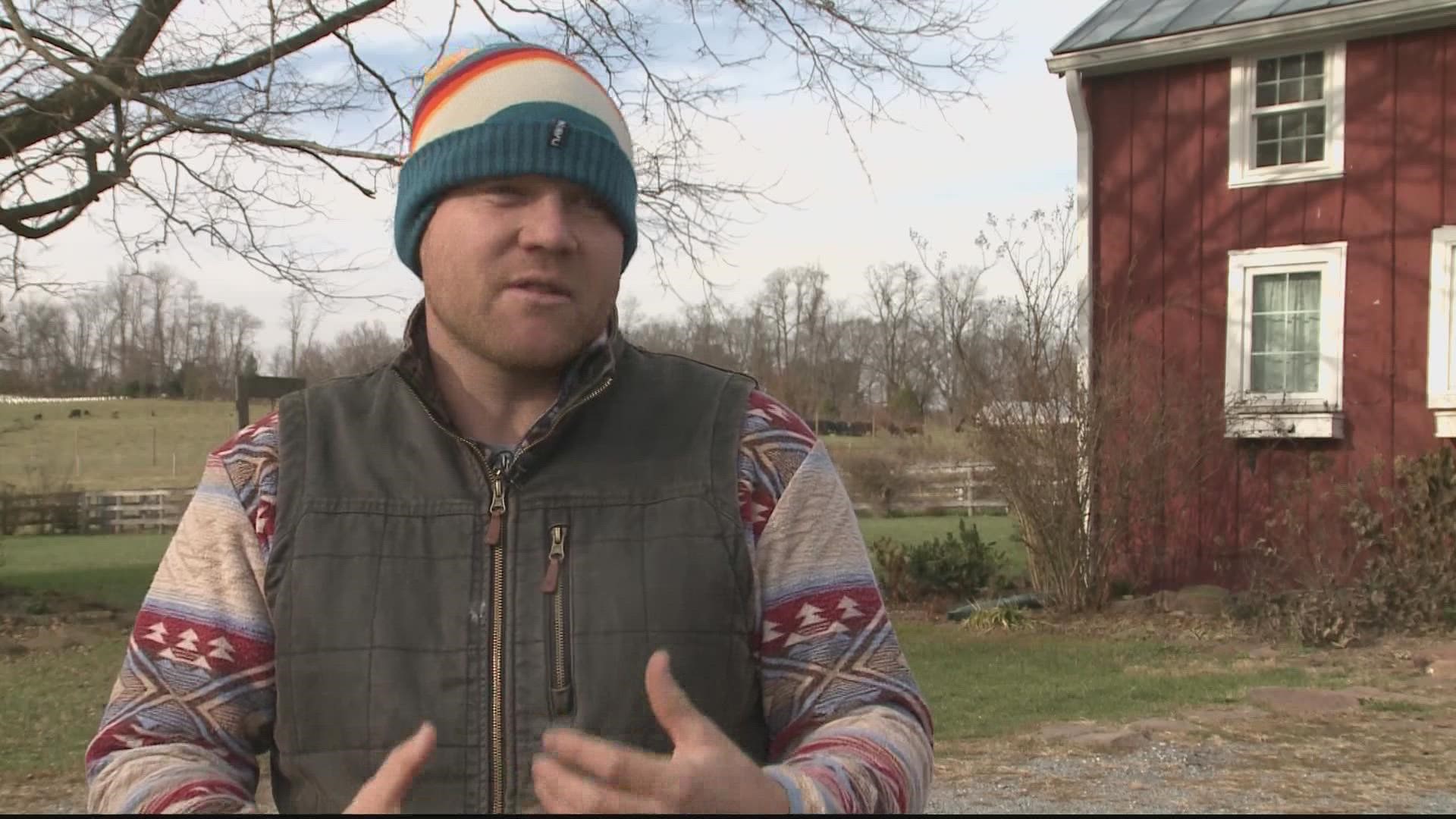POOLESVILLE, Md. — A new report released by the Chesapeake Bay Foundation (CBF) outlines important economic information at a critical time for local farmers. Congress is working on next year's Farm Bill and the report makes a strong case for the United States Department of Agriculture (USDA) and Congress to devote significant funding to help Bay states meet pollution reduction requirements.
The report calculates that for every $1 spent helping farmers implement these practices that ultimately improve the water quality in the Bay watershed, they would see $1.75 in higher sales and earnings. The economic advantages are obvious, but the environmental benefits may be surprising.
Rocklands Farm is a historic property in the Montgomery County agricultural reserve that has been around since the 1870s. It went unoccupied for years until the Glenn family moved to the property in 2003.
"It was this beautiful, old, kind of run-down farm. In 2010, with a vision of bringing life into it and pursuing a life of agriculture. We did produce, we did a farmers market, an on-site market, and things like that," CEO Greg Glenn said.
Initially the farm produced cattle, chickens and vegetables. The Glenns quickly added a vineyard and winemaking to their growing list of passions.
"My wife, my mother, we're a family business and people are coming into the business and finding their niche. It's not just cattle. Not just grapes and wine. There's more of a holistic economy within what we're doing," Glenn said.
They are doing it with the environment as a top priority.
"We have a heart for stewardship and just caring for the land, caring for the soil," Glenn said. "So from the very beginning [we had] this holistic, systems-based approach to working with nature, not against it. Trying to cultivate nutrient-dense foods, feeding the local community and keeping what's on the land for generations to come."
The process is called regenerative farming -- where you're not just depleting natural resources, or even simply sustaining them, but rather you're building on the resources you have, making the land more productive, functional and resilient.
It's something the Chesapeake Bay Foundation is encouraging more farmers to do.
"It's really critical to get more carbon and organic matter into the soil, restoring the sponge, which in turn will help with water quality, reducing flooding events, and then making farms more resilient during times of drought," said Rob Schnabel, a restoration scientist with the Chesapeake Bay Foundation.
"These practices have been around for a long time, but there's definitely a renaissance given climate change issues and farm profitability issues. It's coming back to life," Schnabel said.
At Rocklands Farm Winery, conservation practices include no cultivation or herbicides at the vineyard. In pastures, they're implementing cover crops to help store carbon in the ground year-round. They are also practicing multi-species rotational grazing, where a variety of animals are moved to different fenced off sections of the pasture to graze a particular area before moving on to the next.
"We're really protecting and promoting the healthy soil biodiversity and soil ecosystem," Glenn said.
Regenerative practices like these are not widely adopted yet, but there are a few opportunities for the Chesapeake Bay Foundation to help make that happen.
The federal Farm Bill is up for reauthorization next year and the CBF is hoping to get more resources and funding through the bill.
"We also want to make some changes that'll make conservation dollars go to farmers like Greg who are practicing regenerative practices that we want to see more of, and encourage more farmers to go that route," said Beth McGee, Director of Science and Agricultural Policy for the CBF.
Another opportunity is the recently passed Inflation Reduction Act, which has a $20 billion boost for conservation. It's predicted that over the next five years or so, if the Chesapeake Bay Foundation is able to invest in all of the practices in mind to help save the bay, it will create more than 6,700 jobs.

